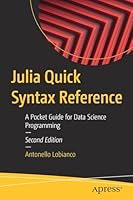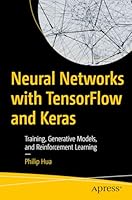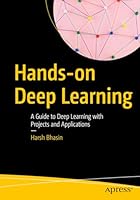
Making Sense of Data II: A Practical Guide to Data Visualization, Advanced Data Mining Methods, and Applications
- Length: 308 pages
- Edition: 1
- Language: English
- Publisher: Wiley
- Publication Date: 2009-02-03
- ISBN-10: 0470222808
- ISBN-13: 9780470222805
- Sales Rank: #547622 (See Top 100 Books)
A hands-on guide to making valuable decisions from data using advanced data mining methods and techniques
This second installment in the Making Sense of Dataseries continues to explore a diverse range of commonly used approaches to making and communicating decisions from data. Delving into more technical topics, this book equips readers with advanced data mining methods that are needed to successfully translate raw data into smart decisions across various fields of research including business, engineering, finance, and the social sciences.
Following a comprehensive introduction that details how to define a problem, perform an analysis, and deploy the results, Making Sense of Data IIaddresses the following key techniques for advanced data analysis:
- Data Visualizationreviews principles and methods for understanding and communicating data through the use of visualization including single variables, the relationship between two or more variables, groupings in data, and dynamic approaches to interacting with data through graphical user interfaces.
- Clusteringoutlines common approaches to clustering data sets and provides detailed explanations of methods for determining the distance between observations and procedures for clustering observations. Agglomerative hierarchical clustering, partitioned-based clustering, and fuzzy clustering are also discussed.
- Predictive Analyticspresents a discussion on how to build and assess models, along with a series of predictive analytics that can be used in a variety of situations including principal component analysis, multiple linear regression, discriminate analysis, logistic regression, and Naïve Bayes.
- Applications demonstrates the current uses of data mining across a wide range of industries and features case studies that illustrate the related applications in real-world scenarios.
Each method is discussed within the context of a data mining process including defining the problem and deploying the results, and readers are provided with guidance on when and how each method should be used. The related Web site for the series (www.makingsenseofdata.com) provides a hands-on data analysis and data mining experience. Readers wishing to gain more practical experience will benefit from the tutorial section of the book in conjunction with the TraceisTM software, which is freely available online.
With its comprehensive collection of advanced data mining methods coupled with tutorials for applications in a range of fields, Making Sense of Data II is an indispensable book for courses on data analysis and data mining at the upper-undergraduate and graduate levels. It also serves as a valuable reference for researchers and professionals who are interested in learning how to accomplish effective decision making from data and understanding if data analysis and data mining methods could help their organization.
Table of Contents
Chapter 1 Introduction
Chapter 2 Data Visualization
Chapter 3 Clustering
Chapter 4 Predictive Analytics
Chapter 5 Applications
Appendix A Matrices
Appendix B Software







